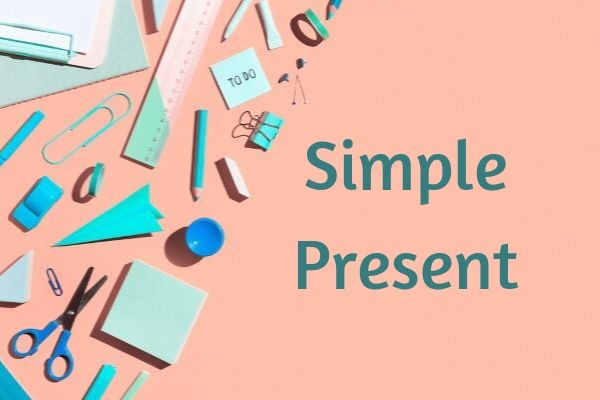Simple Present in German

Simple Present in German. the simple present tense stands as one of the most crucial linguistic elements used on a daily basis. This verb tense forms the foundational structure for constructing sentences and expressing thoughts and events in a clear, direct manner. The simple present tense is employed to describe facts, habits, and daily routines, playing a significant role in conveying information and clarifying matters.

Explanation about Simple Present in German
Features:
Regularity: It describes regular, habitual actions or unchanging truths. For example, “Ich esse Brot” (“I eat bread”).
Continuous Action: It can describe ongoing actions, much like the English present continuous. For example, “Ich lese jetzt” (“I am reading now”).
Near Future: Sometimes, Präsens can describe an action that is planned or assured in the near future. For example, “Ich gehe morgen zur Schule” (“I am going to school tomorrow”).
Verbs: Verbs are conjugated according to subject pronouns (Ich, du, er/sie/es, wir, ihr, sie/Sie).
Formation:
Regular Verbs: Remove the infinitive ending “-en” and add the appropriate ending according to the subject. For example, “machen” becomes “ich mache,” “du machst,” “er/sie/es macht,” “wir machen,” “ihr macht,” “sie/Sie machen.”
Irregular Verbs: Some verbs like “sein” (to be) and “haben” (to have) are irregular and need to be memorized. For example, “ich bin,” “du bist,” “er/sie/es ist,” etc., for “sein.”
Usage:
Statements: “Ich trinke Wasser.” (“I drink water.”)
Questions: “Trinkst du Wasser?” (“Do you drink water?”)
Negations: “Ich trinke kein Wasser.” (“I don’t drink water.”)
Common Mistakes:
Overusing werden: In German, the simple present tense can often express future action, so there’s no need to overuse “werden” for this.
Incorrect Conjugation: Some learners confuse the conjugations, especially for irregular verbs.
Understanding the Präsens in German aids in mastering the basics of communication in the language, and it’s often one of the first tenses taught to beginners for this reason.
Example Sentences:
Ich mache die Hausaufgaben. (I do the homework.)
Du hast einen Hund. (You have a dog.)
Er ist müde. (He is tired.)
Wir machen Sport. (We do sports.)
Ihr habt Zeit. (You [plural] have time.)
Sie sind hier. (They are here.)
Example vocabulary for Simple Present in German
| Verb (Infinitive) | English Meaning | Ich Form | Du Form | Er/Sie/Es Form | Wir Form | Ihr Form | Sie/sie Form |
|---|---|---|---|---|---|---|---|
| gehen | to go | ich gehe | du gehst | er/sie/es geht | wir gehen | ihr geht | sie/Sie gehen |
| essen | to eat | ich esse | du isst | er/sie/es isst | wir essen | ihr esst | sie/Sie essen |
| trinken | to drink | ich trinke | du trinkst | er/sie/es trinkt | wir trinken | ihr trinkt | sie/Sie trinken |
| lesen | to read | ich lese | du liest | er/sie/es liest | wir lesen | ihr lest | sie/Sie lesen |
| schlafen | to sleep | ich schlafe | du schläfst | er/sie/es schläft | wir schlafen | ihr schlaft | sie/Sie schlafen |
| kommen | to come | ich komme | du kommst | er/sie/es kommt | wir kommen | ihr kommt | sie/Sie kommen |
Finally,the simple present tense reveals just how intricate and important language is as a tool for human communication. It serves as more than just a grammatical rule we learn; it is a vital component that allows us to articulate our present, and understand the world around us.






























